Holes, Anne of Green Gables, Things Fall Apart, The Catcher In The Rye, The Great Gatsby, 1984, Animal Farm, most of Shakespeare's plays. These titles share a commonality in the sheer number of dog-eared copies that litter school desks and are jammed in lockers and backpacks.
Love them or hate them, these classic English class titles aren't going anywhere any time soon. But how did it end up that way? What about these specific books helped them make the leap from the store to student desks across the country?
![]() 1. 'The Catcher in the Rye' by J.D. Salinger
1. 'The Catcher in the Rye' by J.D. Salinger
The Catcher In The Rye has a strange history of dancing in and out of classrooms. The novel itself doesn't exactly sing the praises of the American educational system, and its inclusion in the curriculum has periodically lead to the firing of teachers. In an article titled “Why We Teach Catcher,” a number of Santa Monica High School educators discuss why they continue to ask students to read J.D. Salinger. Their responses ranged from its continued relevancy as a coming-of-age story to the usefulness of the themes.
![]() 2. 'The Great Gatsby' by F. Scott Fitzgerald
2. 'The Great Gatsby' by F. Scott Fitzgerald
It's safe to say that F. Scott Fitzgerald would be more than a bit surprised by Gatsby's legacy. When the author died of a heart attack in 1940, fewer than 25,000 copies of the novel had sold. Today, a half-million copies of The Great Gatsby are purchased each year. A New York Times article from 1960 looked back on the book from its 35th anniversary and had already dubbed it a classic. It seems that Gatsby smoldered over time, at first believed to be a flash in the pan, a quickly forgotten remark on the time in which it was written. It took a number of critical essays in the mid-1940s to really turn the tide of public opinion on Gatsby, transforming it into the classroom classic it's known as today.
![]() 3. 'Romeo and Juliet' by William Shakespeare
3. 'Romeo and Juliet' by William Shakespeare
Nothing says high school English class like Shakespeare's tale of two teenagers who die miserable, unnecessary deaths. Shakespeare's works are widely studied in general, whether students are exposed to Romeo and Juliet, Macbeth, A Midsummer Night's Dream, or his sonnets. This history of teaching the Bard, put together by the Royal Shakespeare Company, connects the popularity of his works in English schools to a sense of national pride, but warns of the dangers of exposing students only to the written text of his plays. "The unsuccessful methods [of teaching Shakespeare] normally display two features: they are non-dramatic and they reflect a tendency to regard school children as textual scholars in embryo,” said Shakespeare And The Classroom author, A.K. Hudson.
![]() 4. 'Night' by Elie Wiesel
4. 'Night' by Elie Wiesel
First translated into English in 1960, Night recounts the author's experience with his father in the Nazi German concentration camps at Auschwitz and Buchenwald. A PBS teaching guide highlights Night's first person narrative structure. Wiesel's experiences are good fodder for discussion, and provide students a gateway to the events of the Holocaust in the form of a gripping coming-of-age story.
![]() 5. 'Holes' by Louis Sachar
5. 'Holes' by Louis Sachar
One of the more recent titles on this list, Holes didn't become a popular read until the 1990s when it began to appear in elementary and middle schools. With a plot that centers around curses and the prominence of fate, it makes for a good introduction to symbolism in literature at an early understandable level. Scholastic even offers a teacher's guide for the book that hones in on symbolism and comprehension. When describing the love of Holes in an article at the Children's Book Cellar Blog, the author writes: “Because the plot itself is a palindrome. Or a web. Or a Mobius strip. Or a spiral...The story takes place in the present, the past (about a hundred years ago) and the distant past (three generations ago).“
What were you required to read in school? Did you love English class reads or loathe them? Let us know in the comments!

About the author
Leah Dearborn is a Boston-based writer with a bachelor’s degree in journalism and a master’s degree in international relations from UMass Boston. She started writing for LitReactor in 2013 while paying her way through journalism school and hopping between bookstore jobs (R.I.P. Borders). In the years since, she’s written articles about everything from colonial poisoning plots to city council plans for using owls as pest control. If it’s a little strange, she’s probably interested.
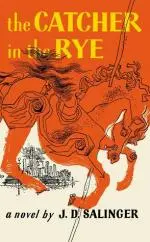
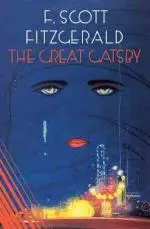
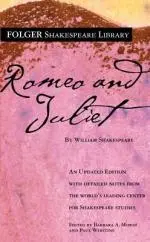 3. 'Romeo and Juliet' by William Shakespeare
3. 'Romeo and Juliet' by William Shakespeare
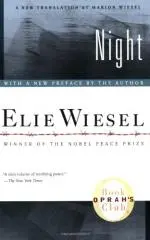
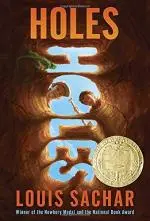 5. 'Holes' by Louis Sachar
5. 'Holes' by Louis Sachar








